| Conferences > Lab-on-a-Chip & Microfluidics 2019: Emerging Themes, Technologies and Applications Track "A" > Keynote Speakers |
| Register | Login |
Chong AhnDistinguished University Research Professor, Mitchell P. Kartalia Chair Professor of BioMEMS, University of Cincinnati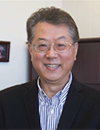 Dr Ahn is Distinguished University Research Professor and Mitchell P. Kartalia Endowed Chair Professor of BioMEMS in the Department of Electrical Engineering and Computer Science at the University of Cincinnati. He is currently Director of the Engineering Research Center (ERC) Clean Room and Ohio Center for Microfluidic Innovation (OCMI) at the University of Cincinnati. He has been recognized internationally as one of the pioneers in the Biosensors, BioMEMS, Microfluidics, Lab-on-a-Chips, and Point-of-Care Testing (POCT) clinical diagnostic fields. His research interests include the design, simulation, fabrication and characterization of BioMEMS devices, microfluidic device and systems, biosensors and biochips, lab-on-a-chips, in vitro diagnostics (IVD), and point-of-care testing clinical diagnostics or neurosurgical monitoring. He has published over ~350 journal and peer-reviewed conference proceeding papers, and chaired numerous international conferences and steering committees. He was invited as a plenary or keynote speaker from the prestigious international conferences such as uTAS, Eurosensors, APCOT, or IEEE IEDM. He served as one of the Scientific Advisory Board members of the Bill & Melinda Gates Foundation on microfluidics and point-of-care testing diagnostics in 2016. |
Zeynep AltintasHead of Biosensors and Receptor Development Group, Technical University of Berlin Zeynep Altintas is the head of the Biosensors and Receptor Development Group at the Technical University of Berlin, Germany. Her background is biomedical engineering and biotechnology. She leads an interdisciplinary research group in the domain of optical, piezoelectric and electrochemical biosensors, lab-on-a chip devices, bioreceptor development, and molecular modelling. Her specialization also includes but not limited to implementation of biosensors for the diagnosis of disease biomarkers, and food and environmental pathogens. She has more than 100 publications in these fields, including a book, journal articles, book chapters, patent applications, and conference papers. She has delivered numerous invited talks at international conferences and world-renowned institutes. She has built a reputation in her areas of expertise that is recognized by several international awards to her research. She serves as an expert reviewer for EU and Wisconsin Groundwater Coordinating Council (USA) funded projects, in addition to acting as an editorial board member and a reviewer for several important journals in her areas of expertise. She is also a member of the Royal Society of Chemistry. |
Martyn BoutelleProfessor of Biomedical Sensors Engineering, Imperial College London Martyn Boutelle is Professor of Biomedical Sensors Engineering in the Department of Bioengineering, Imperial College London, and Associate Provost for Estates Planning for Imperial College. |
Hsueh-Chia ChangBayer Professor of Chemical and Biomolecular Engineering, University of Notre Dame, Interim Chief Technology Officer, Aopia Biosciences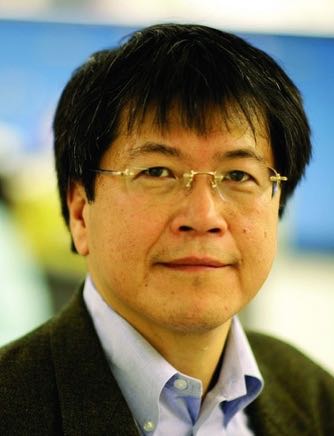 Over 300 publications, with 18,000 citations and h index of 76. He has confounded a startup Aopia Biosciences in 2020 on purification of extracellular vesicles and currently serves as its interim CTO. |
Daniel ChiuA. Bruce Montgomery Professor of Chemistry, University of Washington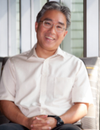 Daniel T. Chiu is currently the A. Bruce Montgomery Professor Chemistry, Endowed Professor of Analytical Chemistry, and Professor of Bioengineering at the University of Washington. He is a member of the University of Washington’s Center for Nanotechnology, Neurobiology and Behavior Program, and the Cancer Consortium of the Fred Hutchinson Cancer Research Center. He has authored more than 180 publications and is the inventor on over 40 issued patents. Dr. Chiu obtained a B.A. in neurobiology and a B.S. in chemistry at the University of California, Berkeley in 1993, and a Ph.D. in chemistry from Stanford University in 1998. |
Dino Di CarloArmond and Elena Hairapetian Chair in Engineering and Medicine, Professor and Vice Chair of Bioengineering, University of California-Los Angeles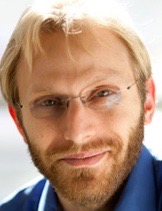 Dino Di Carlo received his B.S. in Bioengineering from the University of California, Berkeley in 2002 and received a Ph.D. in Bioengineering from the University of California, Berkeley and San Francisco in 2006. From 2006-2008 he conducted postdoctoral studies in the Center for Engineering in Medicine at Harvard Medical School. He has been on the faculty in the Department of Bioengineering at UCLA since 2008 and now as Professor of Bioengineering and Mechanical Engineering serves as the Vice Chair of the Department and as the director of the Cancer Nanotechnology Program in the Jonsson Comprehensive Cancer Center. His research pioneered the use of inertial fluid dynamic effects for the control, separation, and analysis of cells in microfluidic devices. His recent work extends into numerous other fields of biomedicine and biotechnology including directed evolution, cell analysis for rapid diagnostics, new amplified molecular assays, next generation biomaterials, and phenotypic drug screening. He has also been a leader in technology entrepreneurship: He co-founded and currently serves on the board of directors of five companies that are commercializing UCLA intellectual property developed in his lab (CytoVale, Vortex Biosciences, Tempo Therapeutics, Forcyte Biotechnologies and Ferrologix). Among other honors he received the Presidential Early Career Award for Scientists and Engineers (PECASE) and was elected a Fellow of the American Institute for Medical and Biological Engineering in 2016, was elected a Fellow of the Royal Society of Chemistry (FRSC) in 2014, was awarded the National Science Foundation (NSF) Faculty Early Career Development award and the U.S. Office of Naval Research (ONR) Young Investigator Award, the Packard Fellowship and Defense Advanced Research Projects Agency (DARPA) Young Faculty Award, and received the National Institutes of Health (NIH) Director’s New Innovator Award and Coulter Translational Research Award. |
Rustem IsmagilovEthel Wilson Bowles and Robert Bowles Professor of Chemistry and Chemical Engineering, California Institute of Technology Rustem Ismagilov was born in Ufa, Russia. He graduated from the Higher Chemical College of the Russian Academy of Sciences, Moscow (1994), before coming to the US to complete his PhD in physical organic chemistry at the University of Wisconsin-Madison (1998). He conducted his postdoctoral work at Harvard University and began his independent research career in 2001, as an Assistant Professor at the University of Chicago, Department of Chemistry. In 2011, he joined the Division of Chemistry and Chemical Engineering at the California Institute of Technology and in 2013 he became the Ethel Wilson Bowles and Robert Bowles Professor of Chemistry and Chemical Engineering. He also serves as the director of the Jacobs Institute for Molecular Engineering for Medicine at Caltech. His lab has developed new approaches to studies of complex chemical and biological networks, and pioneered microfluidic technologies (including droplet-based microfluidics and SlipChip microfluidics) and diagnostic technologies. Current work in the lab includes studies of the impact of the gut microbiome on its host, and development of technologies for rapid diagnosis of antimicrobial susceptibility of pathogens. The work by his research group has been recognized by a number of awards, including the Cozzarelli Prize from the National Academy of Sciences (2007), the NIH Director’s Pioneer Award (2007) and the ACS Award in Pure Chemistry (2008). He was elected a fellow of the American Academy for the Advancement of Science (2010), and was awarded a Burroughs Wellcome Fund fellowship in Innovation in Regulatory Science Award (IRSA) (2015) and a Kenneth Rainin Innovator Award (2018). |
Maiwenn Kersaudy-KerhoasProfessor of Microfluidic Engineering, Heriot-Watt University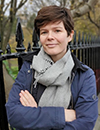 Maïwenn Kersaudy-Kerhoas is a Professor of Microfluidic Engineering at Heriot-Watt University in Edinburgh, Scotland. She leads a multi-disciplinary research group of biologists and engineers. Her work has focused on the development of robust, reproducible and affordable prototyping methods for point-of-care diagnostics. She has developed several pre-analytical tools for liquid biopsies applications with clinicians, including blood plasma separation devices, cell-free DNA extraction cartridges and a finger-actuated blood processing device. In 2013, she received a five year Royal Academy of Engineering Fellowship and in 2018 a Healthcare Technology Challenge Award from the UK Engineering and Physical Science Council. In 2019 she was awarded a Royal Academy of Engineering ‘Frontiers of Development’ and Global Challenge Research Fund seed funding to develop an advanced sepsis diagnostic tool via cell-free microbial nucleic sequencing with clinical partners around the world. She is a recipient of the 2023 Royal Academy of Engineering Frontiers Champion award, which she will use for the creation of a Frugal Diagnostic network. |
Abraham LeeChancellor’s Professor, Biomedical Engineering & Director, Center for Advanced Design & Manufacturing of Integrated Microfluidics, University of California-Irvine Abraham (Abe) P. Lee is Professor of Biomedical Engineering (BME) and Mechanical and Aerospace Engineering (MAE) at the University of California, Irvine (UCI). He is Director of the NSF I/UCRC “Center for Advanced Design & Manufacturing of Integrated Microfluidics” (CADMIM). Dr. Lee served as Editor-in-Chief for the Lab on a Chip journal from 2017 to 2020. Prior to UCI, he was at the National Cancer Institute and was a program manager in the Microsystems Technology Office at DARPA (1999-2001), Senior Technology Advisor at National Cancer Institute (NCI) and a group leader with Lawrence Livermore National Lab (LLNL). Over the years, Dr. Lee has pioneered research in applying microfluidics to biomedical applications, and currently focuses on integrated microfluidic systems for precision medicine including liquid biopsy, microphysiological systems, cell engineering, and immunotherapy. His research has contributed to the founding of several start-up companies. He owns 60 issued US patents and is author of over 130 journals articles. Professor Lee was awarded the 2009 Pioneers of Miniaturization Prize and is an elected fellow of the National Academy of Inventors (NAI), the American Institute of Medical and Biological Engineering (AIMBE), the Royal Society of Chemistry (RSC), the American Society of Mechanical Engineering (ASME), the International Academy of Medical and Biological Engineering, and the Biomedical Engineering Society (BMES). |
John McDevittChair, Department Biomaterials, New York University College of Dentistry Bioengineering Institute John T. McDevitt serves as the Chair for the Department Biomaterials at New York University College of Dentistry, is a member of NYU’s Bioengineering Institute and participates as a faculty member in the NYU Department of Chemical and Biomolecular Engineering within the Tandon School of Engineering. McDevitt is a pioneer in the development of ‘programmable bio-nano-chip’ technologies. He has a strong track record of translating essential bioscience discoveries into real-world clinical practice. In this capacity, he serves as the Scientific Founder for three diagnostic companies. His most recent company, SensoDx, features a universal platform sensor technology with capacity to digitize biological signatures for a broad range of key health conditions. McDevitt and his team has raised over $45M in Federal and Foundation support. His recent research has been sponsored by major programs funded by the National Institute of Dental and Craniofacial Research (NIDCR) division of the National Institutes of Health (NIH), the Bill and Melinda Gates Foundation, Cancer Prevention Research Institute of Texas (CPRIT), the National Aeronautics and Space Administration (NASA), the Army and the United Kingdom’s Home Office Scientific Development Branch. |
Carl MeinhartProfessor, University of California-Santa Barbara Dr. Meinhart is a professor of Mechanical Engineering at the University of California – Santa Barbara. He completed his PhD and Postdoctoral work at the University of Illinois in June of 1995. At the University of Illinois, his research involved the investigation of turbulent flows. Since coming to UCSB in 1996, his research has focused on developing microfluidic devices and exploring their fundamental transport mechanisms. Dr. Meinhart is a fellow of the American Physical Society. Prof. Meinhart’s group pioneered the concept of free-surface microfluidics. In collaboration with Prof. Martin Moskovits’ group in chemistry at UCSB, and their respective students, they have developed a novel technique for measuring gas-phase chemicals with very high sensitivity. |
Holger SchmidtNarinder Kapany Professor of Electrical Engineering, University of California-Santa Cruz Holger Schmidt received the Ph.D. degree in electrical and computer engineering from the University of California Santa Barbara and served as a Postdoctoral Fellow at M.I.T. He is currently the Narinder Kapany Chair of Optoelectronics and Distinguished Professor of Electrical and Computer Engineering at UC Santa Cruz. He directs the W.M. Keck Center for Nanoscale Optofluidics and has served as the Associate Dean for Research in the Baskin School of Engineering. His research interests cover a broad range in photonics and integrated optics, including optofluidic devices, nanopore sensors, nano-magneto-optics, spintronic devices, and ultrafast optics. He has authored more than 400 publications, several book chapters, and co-edited the CRC Handbook of Optofluidics. He is a Fellow of the National Academy of Inventors, the IEEE and the Optical Society of America. He received an NSF Career Award, a Keck Futures Nanotechnology Award, and the Engineering Achievement Award by the IEEE Photonics Society. |
Steve SoperFoundation Distinguished Professor, Director, Center of BioModular Multi-Scale System for Precision Medicine, The University of Kansas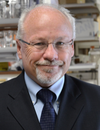 Prof. Soper is currently a Foundation Distinguished Professor in Chemistry and Mechanical Engineering at the University of Kansas, Lawrence. Prof. Soper also holds an appointment at Ulsan National Institute of Science and Technology in Ulsan, South Korea, where he is a World Class University Professor. He is also serving as a Science Advisor for a number of major worldwide companies. Prof. Soper is currently on the Editorial Board for Scientific Reports and Journal of Micro- and Nanosystems. |
Richard Chasen SperoCEO, Redbud Labs Richard Spero is co-founder and CEO of Redbud Labs, where he leads both commercial activities and the company’s systems engineering team. He is a co-inventor of Redbud Posts, a MEMS chip covered with biomimetic cilia. Redbud Posts enable novel methods for fluid processing at the microscale, including pumping, mixing, cell sorting, and analyte isolation. This technology is used by point-of-care diagnostic device developers to improve assay speed, reliability, and performance. Prior to founding Redbud Labs, Dr. Spero earned his PhD in Physics at the University of North Carolina at Chapel Hill, where he studied blood clot rheology and developed novel systems for magnetic manipulation and time-dependent high content screening. |
Joseph WangDistinguished Professor, SAIC Endowed Chair, University of California-San Diego Joseph Wang is Distinguished Professor, SAIC Endowed Chair, and former Chair of the Department of Nanoengineering at University of California, San Diego (UCSD). He is also the Director of the UCSD Center of Wearable Sensors and Co-Director of the UCSD Center of Mobile Health Systems and Applications (CMSA). He served as the director of Center for Bioelectronics and Biosensors of Arizona State University (ASU) before joining UCSD. Prof. Wang has published more than 1175 papers, 11 books and he holds 30 patents (H Index=179, >135,000 citations). He received 2 American Chemical Society National Awards in 1999 (Instrumentation) and 2006 (Electrochemistry), ECS Sensor Achievement Award (2018), IUPAC Analytical Medal (2021) and 5 Honorary Professors from Spain, Argentina, Czech Republic, Romania, China and Slovenia. Prof. Wang has been the Founding Editor of Electroanalysis (Wiley), is RSC, ECS and AIMBE Fellow and a Thomson Reuters Highly Cited Researcher. His scientific interests are concentrated in the areas of bioelectronics, wearable devices, biosensors, bionanotechnology, nanomachines and microrobots, flexible materials, and electroanalytical chemistry. |
Aaron WheelerCanada Research Chair of Bioanalytical Chemistry, University of Toronto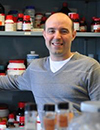 Aaron Wheeler completed his Ph.D. in Chemistry in 2003, working with Dick Zare at Stanford University. After graduating, Aaron spent two years as an NIH postdoctoral fellow at UCLA. Click here for links to Aaron's pre-Toronto publications. Since 2005, Aaron has been the Canada Research Chair of Bioanalytical Chemistry at the University of Toronto. Aaron is fortunate to work with a phenomenal (and prolific) research group -- their success has led to international recognition including the Arthur F. Findeis Award from the American Chemical Society and the Joseph Black Award from the Royal Society of Chemistry. |
Paul YagerProfessor, Department of Bioengineering, University of Washington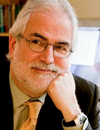 Paul Yager is the Professor in the Department of Bioengineering at the University of Washington, Seattle. Professor Yager served as the The Hunter and Dorothy Simpson Endowed Chair, Department of Bioengineering from 2008-2013. Professor Yager's research focuses on microfluidics and its applications in global health. |




